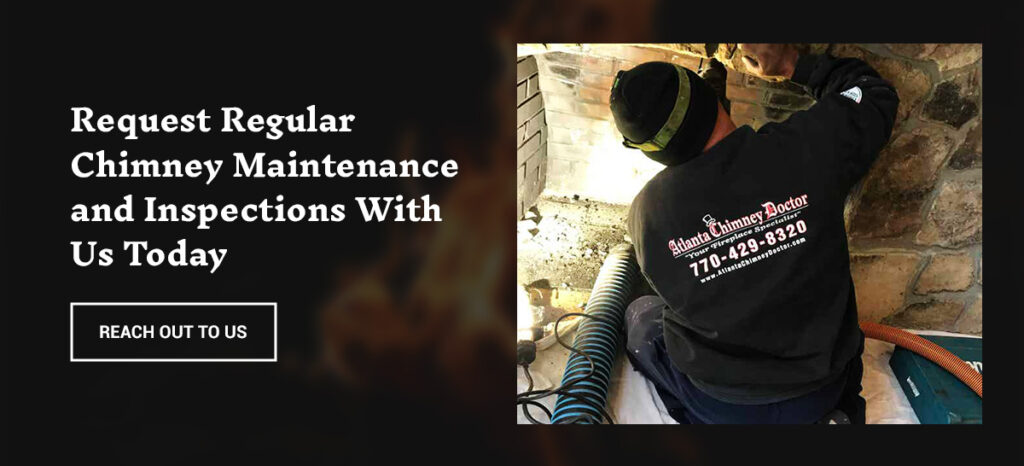If you have noticed your chimney leaks when it rains, further complications may be deeper inside. The causes of rain in chimneys can vary for each situation — some more serious than others. Whatever the reason, it’s important to get your chimney inspected right away. Atlanta Chimney Doctors can help assess the situation and develop a solution to keep your home safe and in good condition.
Ways Rain Can Come Down Your Chimney
Moisture is often seen in the chimneys of older houses, especially those that were constructed without proper ventilation. However, rain and moisture can accumulate even in newer chimneys. Some causes of rain in your chimney include:
- Damaged or missing chimney cap.
- Cracked or deteriorated chimney crown.
- Faulty flashing around the chimney.
- Improperly sealed masonry.
- Obstructed or blocked chimney flue.
Potential Risks and Consequences of Rain in the Chimney
As we briefly mentioned, rain can cause damage to the chimney interior and its adjoining structures. This is especially dangerous to the structural integrity of the chimney, which can eventually lead to a deterioration of the mortar and brickwork in a worst-case scenario.
Also, prolonged moisture in a cool, dark place like a chimney can form mold and mildew. Sometimes, your own body can show signs of these present in your home, especially if you are prone to allergies. Mold spores can cause watery eyes, sneezing, coughing, headaches and fatigue.
As odd as it sounds, rain in your chimney can even lead to an increased risk of chimney fires. The flue liner in a chimney is composed of clay and can become a combustible substance when mixed with water.
Common Signs of Rain Entry
Rain can leave some signs behind once it gets in your chimney — especially if it has been there for a while. An active chimney leak can show any of these indications around the fireplace in your home or outside the chimney structure:
- Water stains on the interior walls or ceilings near the fireplace
- Damp or musty odor
- Visible water or debris in the fireplace or firebox
- Cracked, loose or deteriorated masonry
How to Inspect Your Chimney for Rain Damage
Knowing what to inspect and look for in your chimney is crucial to catching issues early. Here’s what we recommend:
- Check the condition of the chimney cap and crown: As its name suggests, your chimney cap sits on the top of the chimney and prevents rain and moisture from getting in. This is the obvious first place you’d look, making sure it is structurally intact.
- Examine the flashing for signs of damage: Your chimney flashing is a thin piece of metal installed where the chimney meets the roof. Over time, this can pull away from the chimney or rust, breaking the seal it’s designed for.
- Inspect the masonry for cracks, gaps or missing mortar: Older chimneys are more susceptible to cracks or gaps as they settle over time, letting in and trapping moisture.
Chimney Leak Solutions From Atlanta Chimney Doctor
If any of these signs are relevant to you, Atlanta Chimney Doctor can help. We emphasize safety and use our experience to develop solutions to any chimney leak. Some of our top services include:
- Chimney cap repair or installation
- Chimney cleaning
- Waterproofing and repair
- Chimney relining
- Masonry repair

